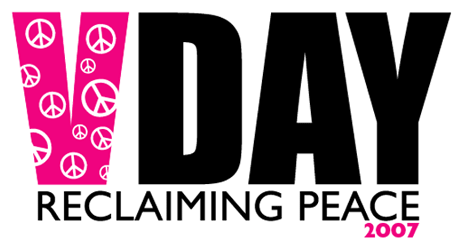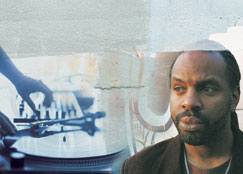An analysis on prejudice within return missionary circles:
Kii nok. We’ve all heard it. Many of us have probably said it from time to time. However, do we really understand its meaning, or do we skew the meaning to fulfill preconceived notions about men who date Asian women? Recently, a friend of mine relayed a story to me about his conversation with some recently returned missionaries from Thailand. In their conversation, the topic of interracial dating came up (my friend is currently dating a great girl from Thailand). The recently returned missionaries jokingly asked, “So…does that mean that you are a kii nok?” They continued, “you know… like Bernhard and Matt Vogel?” Now, for the record, both Matt and I are married to girls from Thailand. My wife is part Thai, born in Arizona, but raised in Hong Kong and Thailand. Matt’s wife is from P-loog. One of the return missionaries knew me personally, and in an attempt to defend me, said “well… Bernhard is only half kii nok because Marissa is only half-Thai.” This brings me to the abuse of the popular word “kii nok” and the implications of the word. The reason I write this is to 1. Explore the way that Thai missionaries typically interpret this phrase and 2. To bring to our attention that the way kii nok is often used within Thai missionary circles can be construed as offensive, and racist. Finally, my intention is not to be didactic, rather, to expose the problems associated with generalizations, and to suggest that missionaries think wisely about their use of Thai terms that, if used incautiously, become loaded and offensive terms. I would also argue that these terms distract from the love of Thailand, as do close-minded conceptions of Buddhism (of course, that’s for another lecture ☺).
I used the term kii nok quite a bit on my mission. I heard it used to refer to old men with young girlfriends and also heard it extend to refer to return missionaries that were dating Thai women, or visiting Thailand. At the time, I paid little attention to the diversity of the term’s usage and often joked with my companions about kii noks. There was a separation between us and them. They were the “other”; the farang’s in Thailand that didn’t understand Thailand as intimately as we did, couldn’t speak the language, and in large part were there to take advantage of the country. We would be friendly when we met them, and make exceptions for the individual’s we did meet. My companions often expressed their distaste for the interracial couples we met. I don’t think they were mean spirited, rather, they had become jaded by the many men who come to Thailand solely to exploit Thai women. However, it was interesting to see how the term kii nok quickly broadened to describe not only these men, but men who dated Thai women in general. In light of the conversation I relayed a moment ago, we can see that these sentiments have yet to change. It is difficult to avoid the degrading implications of calling someone a kii nok. I cannot say that it is ever warranted. However, I would further argue that it is especially not warranted with young couples that fall in love honestly and sincerely seek companionship.
When the returned missionary stuck up for me and said, “Ohh…he’s ok, he’s only half kii nok,” what was he really saying (knowingly or unknowingly)? The anthropologist Jeffrey Fish has some insightful essays on the idea of “mixing blood.” In his article Mixed Blood he said the following: “Americans believe in “blood,” a folk term for the quality presumed to be carried by members of so-called races. And the way offspring — regardless of their physical appearance — always inherent the less prestigious racial category of mixed parentage is called “hypno-descent” by anthropologists. A sentence thoroughly intelligible to most Americans might be, “Since Mary’s father is white and her mother is black, Mary is black because she has black ‘blood’. He continues “Oddly, because of hypno-descent, Americans consider people with one-eighth black “blood” to be black rather than white, despite their having seven-eights white “blood.” Quantifying people’s “blood” is a strange and incorrect form of social classification popular to America. With that said, how can I be a half kii nok without my wife first being considered “tainted” with Thai blood? If I’m only half kii nok, that means that my wife has only inherited half “less prestigious blood” from her parents. The real focus shifted from me marrying an Asian person to quantifying how much a kii nok that makes me according to her Thai “blood.” What does that mean for my close friend Matt Vogel? Is he completely hopeless because he has married a woman who is full Thai? What of his children? Are we beginning to see how the abuse of the word kii nok can be construed as racist? Some reading this might think: “you’re blowing this issue way out of proportion.” I suppose I would answer that by asking a question, “have you been called a kii nok for marrying someone your same age that you truly love?”
When I first returned to Thailand after my mission to ask Marissa to marry me I was worried. I was worried of what missionaries would think of me. I didn’t want to be considered a kii nok (my wife often reminds me of how idiotic it was of me to lump myself in the same category as the sixty year old farang’s dating eighteen year old girls). Yet, I truly was concerned. Of course, this is extremely silly if anyone knows me and knows my past. I have dated women from A LOT of different races my entire life, so when I met Marissa her race was arbitrary. I never once had the thought: “I finally done got me one of them Asian chicks.” However, I was part of this culture I’ve been illustrating in the two past paragraphs that misuse the term kii nok and end up knowingly or unknowingly making racist comments. The truth is, our perceptions of race are largely affected by myth and social tradition, despite the fact that even the concept of race has been greatly scrutinized by many academic disciplines. It is not becoming of us to question a person’s choice to marry someone outside of their own racial classification. We don’t say, “I can’t believe he married that girl from Kansas!” But there is a great deal of taboo surrounding a return missionary’s choice to marry or date someone from the country they served in. This taboo often extends to an entire “type” of people. All of a sudden, past missionaries are being called kii noks because they marry women from Korea, China, or Japan. The abuse of the word kii nok leads to prejudice views of interracial dating, and as a result, to Thai women and Thai people. The focus of the comments shift from “that person is a kii nok because they are taking advantage of a girl 40 years younger than them,” to “that person is a kii nok because he/she is dating a Thai person”. This shift in focus emphasizes the idea that Thai women are the “kii nok creators.” I suggest that we all heighten our awareness about the implications underlying certain derogatory Thai terms. This is probably a bigger issue for those of us in Utah County that still interact and unfortunately are privy to mission gossip. Nonetheless, I think this applies to us all and is something that we all could benefit from considering. Prejudice views will ultimately lessen our love for the beautiful people we served. Peace.






Recent Comments